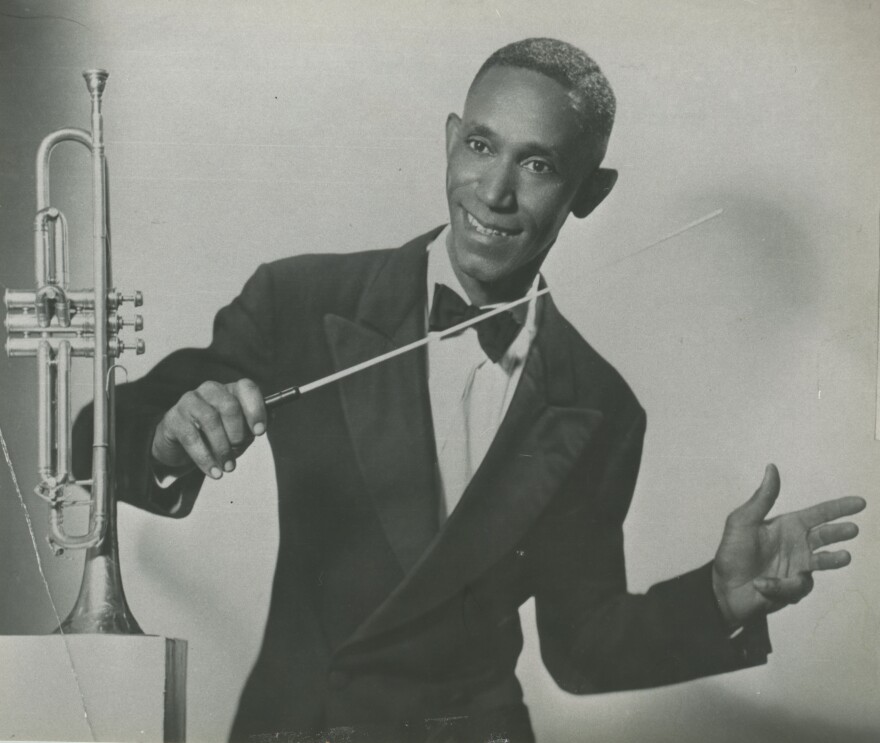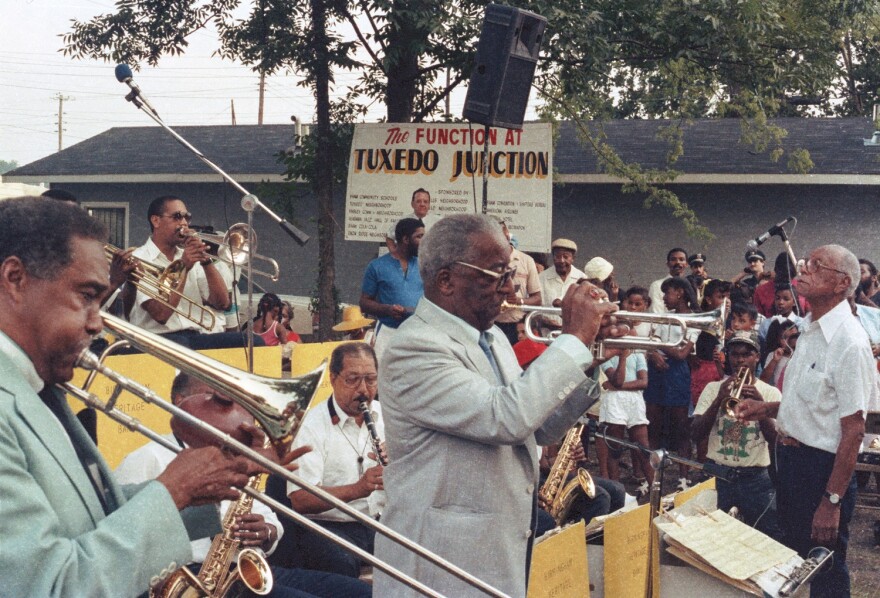Editor's Note: This story was updated on June 20 to reflect additional reporting on Batiste's performance at the MLB at Rickwood Field game.
On a warm spring evening in Birmingham, Alabama, “Sunday Supper” is served at the historic Ballard House.
The meal has all the fixings of a classic Southern meal — beef tenderloin, baked chicken, smoked salmon, broccoli salad, macaroni and cheese and plenty more. And on this night, it’s also hosting a famous guest of honor — Grammy-winning jazz pianist and former The Late Show with Stephen Colbert bandleader Jon Batiste.
Batiste, a member of New Orleans’ famed Batiste family, is in town for a stop on his “Uneasy” tour. It’s his first solo tour, and Birmingham was a late addition to the itinerary. He said he's always wanted to perform here and took the chance to add it to his tour after some nearby festival performances.
“I have never toured because I was on television for seven years and I was doing 200 shows a year, and I was doing other things in between, but I could never go on the road for longer than a week or two,” Batiste said.
Batiste’s stop at The Ballard House meant more to him than getting a good meal, though. It also allowed him to take in some of Birmingham’s rich history and reconnect with an old friend.

Danella Johnson and her son, Barry, hosted the dinner. Batiste grew close with the Johnsons after meeting Barry at a Forbes event in 2010, while Batiste was living in New York working to earn his master's degree from The Juilliard School.
A few years later, when Batiste was working on The Late Show, he invited Barry and Danella to a taping. Danella said he showed great hospitality, and April’s dinner was her turn to return the favor.
“This is more personal, and we know that we wanted him to see the house, to see part of what we are doing here in Birmingham,” she said.
The Ballard House sits in Birmingham’s Civil Rights District and is used to preserve African American history in the city. Batiste cleared a whole day from his schedule to visit many of the historic areas in Birmingham — like the A.G. Gaston Motel and 16th Street Baptist Church.
He said he always read about Birmingham in history books but wanted to experience it himself.
“Birmingham is one of those places that has a lot of sacred sites, sacred landmarks and places where our heroes of humanity… of civil rights… of spiritual enlightenment in the world congregated,” Batiste said.

The dinner being at The Ballard House also served this reason. It was the home and place of practice of Dr. E. H. Ballard, a successful Black physician. The house later became the office of Dr. Herschell Hamilton Sr., the city’s first Black board-certified surgeon. He was also known as “The Dog Bite Doctor,” because he treated foot soldiers injured during the Civil Rights Movement, including civil rights leaders Fred Shuttlesworth and Martin Luther King.
“When I come into a place like this, or when I… go past even tragic sites — 16th Street Baptist Church that John Coltrane wrote “Alabama” for when those four girls tragically were killed in a bombing. All those kinds of things, I think about and I feel the energy, and I take that with me into performance and I channel it,” Batiste said.
Alabama’s rich musical history

Batiste also channels the energy of the musicians from his home and the rest of the Gulf South region — the musicians who laid the groundwork for people like him to be where he is today.
Alabama has an overflowing history of music and, according to Burgin Matthews, the jazz traditions of Birmingham helped shape the sound of American music.
“The music of this region is meaningful to me,” Matthews, the executive director of the Southern Music Research Center in Birmingham, said. “There’s a lot in Alabama’s history and present that is complicated, messy and ugly. But there is a lot of beauty in our cultural heritage — from blues to gospel to country to jazz and beyond.”
Acts like the Temptations, Lionel Richie and the Commodores, and the cosmic entity Sun Ra — who claimed to be from Saturn, but was actually from Birmingham — usually come to mind when people think of Alabama musicians. But Matthews said many unsung heroes from the Yellowhammer State’s musical history are also worth recognizing.

Names like John T. “Fess” Whatley, who got his nickname because he was a professor at Birmingham Industrial High School — now A.H. Parker High School — and was known for emphasizing the importance of reading music to his students. Many of his pupils went on to play in bands for jazz legends like Cab Calloway, Count Basie and Duke Ellington.
Whatley’s best-known students include Cleveland Eaton, Erskine Hawkins and Sun Ra. And even though they may have spread their wings and left the Magic City, they never forgot home.
“Name check those people in those places,” Matthews said.”There's lots of evidence that [Sun Ra] played with and blew up and mythologized and expanded upon what he learned here in Birmingham. His music, in some ways, always did come back to Birmingham.”
‘I’m rooted in something bigger than me’

Back at the Ballard House, Batiste said he is reminded of what led him into the world of music each time he comes back down South.
“I'm rooted in something that's way bigger than me,” he said. “It's a whole lineage of humanity and history, and all of this leads to you. You are the culmination of all that. We wouldn't be here if it wasn't for all of that. So now that we're here, it's our opportunity to decide what we want to do, what all of that has led to us.”
Before leaving for the evening, Batiste mentions that he is working on something special specifically for the South — something that may help spotlight more of the music from down here.
“I want to focus on the South,” he said. “New Orleans, obviously where I'm from, but all around Louisiana, all around Alabama, all around Georgia, Florida — just to go to all of these different places and not just go in and out, but to be able to have ‘residencies’. We're going to do that. Actually, look out for that.”
Batiste's plans also include taking part in a historic moment in Birmingham Thursday evening.
He's set to headline a musical tribute to the Negro Leagues during the pre-game festivities at the MLB at Rickwood Field game between the San Francisco Giants and the St. Louis Cardinals. Batiste will perform alongside country music artists Brittney Spencer and Willie Jones and blues artist C.S. Armstrong. The performance will include Batiste's hit songs "Master Power," "I Need You," "Lift Every Voice and Sing" and the U.S. National Anthem.
Happy Juneteenth! Tune in tomorrow:
— jon batiste (@JonBatiste) June 19, 2024
"Bill Greason first pitch, Jon Batiste performance highlight MLB at Rickwood Field pregame festivities https://t.co/cCpzofa0wM
This story was produced by the Gulf States Newsroom, a collaboration between Mississippi Public Broadcasting, WBHM in Alabama, WWNO and WRKF in Louisiana and NPR.


